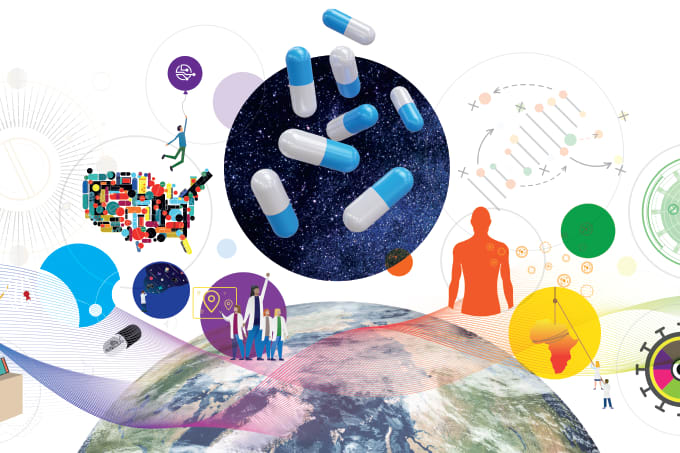
When Nikhil Kulkarni reflects on his journey into engineering, he traces it back to childhood days in Kolhapur, a town renowned for its manufacturing culture. Growing up surrounded by machines and engineers shaped his fascination with design, efficiency, and transformation. His early career in the automotive sector gave him not just technical expertise, but also a crash course in leadership after transforming a joint venture from start-up to scale-up instilled a taste for ambitious goals and complex challenges.
Today, as Group CEO of ACG Engineering, Kulkarni has carried that mindset into a very different industry: pharmaceuticals. In this interview, we speak with Kulkarni about his vision for pharma manufacturing: intelligent, flexible, and sustainable systems powered by digital transformation and pharma 4.0.
What first inspired your interest in engineering?
Growing up in a family of engineers naturally inspired me to pursue a career in engineering. My childhood days in Kolhapur, India, a town well known for its engineering and manufacturing prowess, also influenced my path. I was always fascinated by machines and automobiles from a young age. That passion gradually developed into a deep interest in the mechanical engineering domain.
And how did you also gain an interest in leadership roles?
Early in my career, I had the opportunity to lead the transformation of an Indo-US joint venture in India from a “start-up to scale-up” automotive business. This experience required me to work across all management levels and functions, without boundaries. It was both challenging and rewarding, and it sparked my interest in business leadership. The success of that transformation in India gave me the confidence and appetite to take on more challenging leadership roles in the future.
You have a background in the automotive sector – what drew you to pharma and the role with ACG Engineering?
My decision to join ACG was shaped by both strategic opportunity and personal alignment. ACG Engineering is at a pivotal point, undergoing a transformative shift, and this offered an exciting leadership opportunity where I could apply my deep automotive expertise to a new and highly impactful sector. On a personal level, the pharma industry appealed to me because of the direct role it plays in improving health and wellbeing worldwide. This gave me an additional sense of purpose in making the move.
Do you think there are lessons that pharma can learn from the automotive sector?
There is a great opportunity for cross-pollination of ideas and processes between the two industries. The automotive sector has a strong track record in areas such as total quality management, operational excellence, and supply chain efficiency – all of which are valuable in pharma.
Pharma can also benefit from adopting the automotive industry’s approach to innovation and new product development, where process excellence, speed to market, and customer centricity are paramount. The relentless focus on improving customer experience in automotive is another area that could positively influence pharma.
How would you like to see pharma manufacturing solutions evolve in an ideal world?
Pharma manufacturing solutions are being shaped by cutting-edge technology, digital transformation, regulatory change, global health demands, and sustainability requirements.
Looking ahead, I see the future being defined by smart manufacturing, modular, flexible, AI/ML-driven systems and by pharma 4.0. Continuous manufacturing will continue to grow, particularly as personalized medicines and therapies advance, while sustainability and green manufacturing practices will increasingly become non-negotiable. Ideally, pharma manufacturing will evolve to be more agile, intelligent, and environmentally responsible.
How important is sustainability when it comes to pharma manufacturing systems?
All industries across the globe, including pharma, are going through a transformation journey in sustainability. Customers now expect not only sustainable end products, but also sustainable and green practices throughout the manufacturing process. At ACG Engineering, sustainability is becoming a core value proposition. Life-cycle assessments of equipment and CO₂ footprint reduction are central to our approach, and we are following a comprehensive and structured roadmap to achieve carbon neutrality by 2040. This commitment is not only about reducing impact but also about aligning with the expectations of our customers and the wider global community.
What are your goals for your role at ACG Engineering?
My goal is to lead the transformative journey at ACG Engineering with a relentless focus on enhancing the overall customer experience. This will be driven by new technology and innovation, world-class quality, and operational excellence. I also want to create an environment where our teams can thrive, contribute ideas, and feel part of shaping the future of pharma manufacturing
Tell us about a day in the life of a CEO…
My day starts and ends with a focus on activities that bring value to our customers and stakeholders. That could mean engaging directly with customers, working with teams on technology development, or addressing operational matters. Every day, I learn something new and fascinating about our customers, products, processes, and people. Those daily insights help me navigate challenges and guide the business through external headwinds, while keeping us on track toward our long-term vision.




